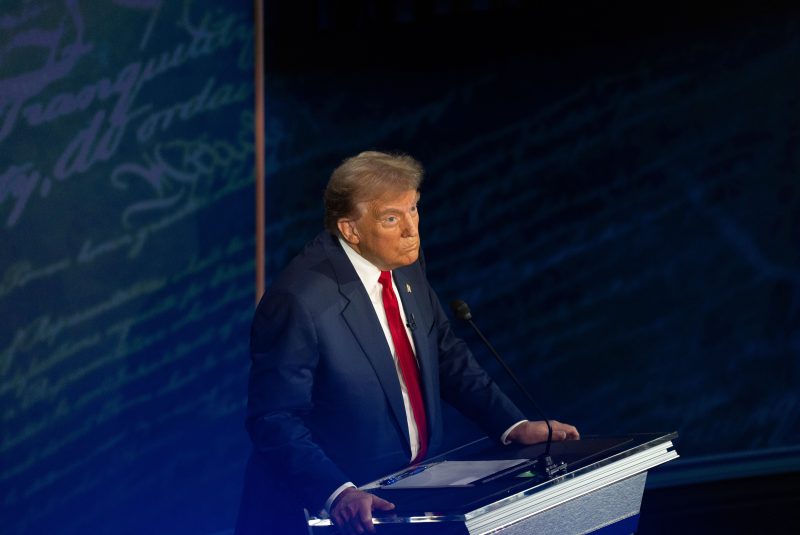**The Debate Over Real-Time Fact-Checking: Trump’s Latest Battle**
In the era of rapid information dissemination and social media dominance, real-time fact-checking has emerged as a powerful tool for holding public figures accountable. However, like any innovation in the digital age, it is not without controversy. Recent events surrounding former President Donald Trump exemplify the ongoing debate over the effectiveness and potential drawbacks of real-time fact-checking.
Trump’s tenure as President was marked by his prolific use of social media, particularly Twitter, to communicate directly with the public. His unfiltered tweets often contained false information or misleading claims, prompting a wave of fact-checking efforts by news outlets and independent organizations. These fact-checks, conducted in real-time, aimed to provide context and accuracy to counter the spread of misinformation.
However, Trump’s relationship with fact-checkers was turbulent, to say the least. He frequently criticized fact-checking organizations, dismissing their findings as biased or politically motivated. In response to Twitter’s decision to label some of his tweets as misleading, Trump signed an executive order targeting social media companies and their ability to moderate content. This move ignited a fiery debate over the limits of freedom of speech and the responsibilities of social media platforms in regulating information.
Supporters of real-time fact-checking argue that it is essential in an age where misinformation can spread rapidly and have real-world consequences. By providing immediate corrections to false statements, fact-checkers play a crucial role in maintaining an informed citizenry and upholding the integrity of public discourse. They assert that holding leaders accountable for their statements is necessary to prevent the erosion of truth and trust in institutions.
On the other hand, critics of real-time fact-checking warn of potential pitfalls and the risk of overreach. They caution against the subjective nature of fact-checking and the potential for bias in determining what constitutes a fact. Furthermore, they argue that fact-checking could be weaponized for political gain, with rival factions using it to discredit opponents and suppress dissenting voices.
The clash between Trump and fact-checkers highlights the complex interplay between power, information, and accountability in the digital age. As society grapples with the challenges posed by the proliferation of misinformation and the erosion of trust in traditional institutions, the role of real-time fact-checking remains a subject of intense debate.
In conclusion, the battle over real-time fact-checking is far from over. It raises fundamental questions about the nature of truth, the responsibilities of public figures, and the role of technology in shaping public discourse. As we move forward in an era defined by rapid communication and heightened polarization, finding a balance between free expression and factual accuracy will be paramount in safeguarding democracy and fostering informed civic engagement.






















